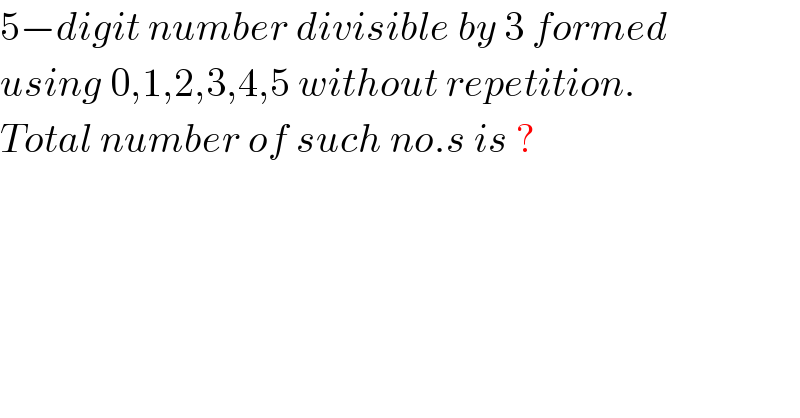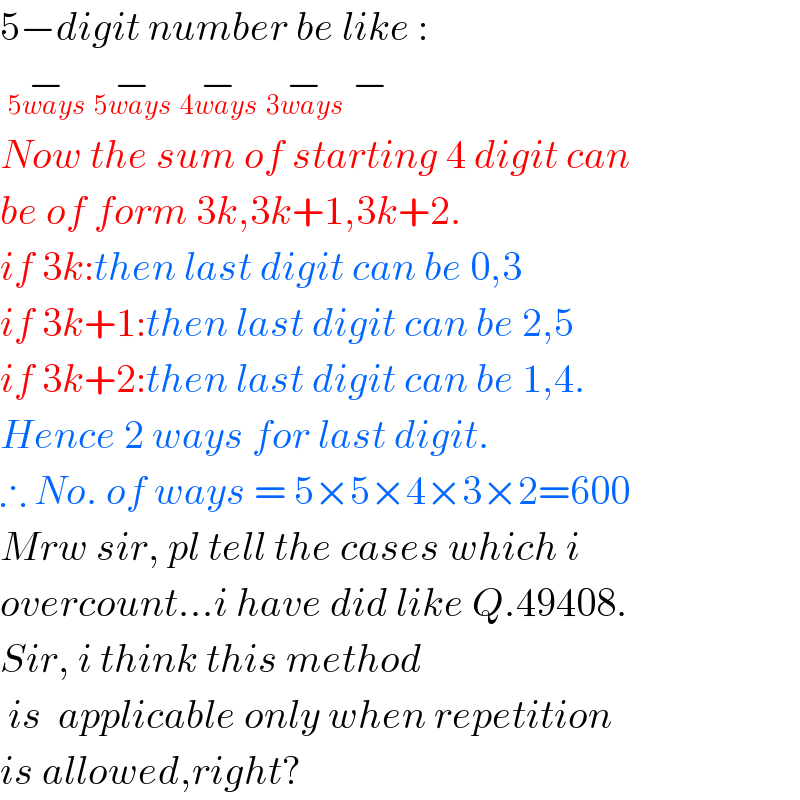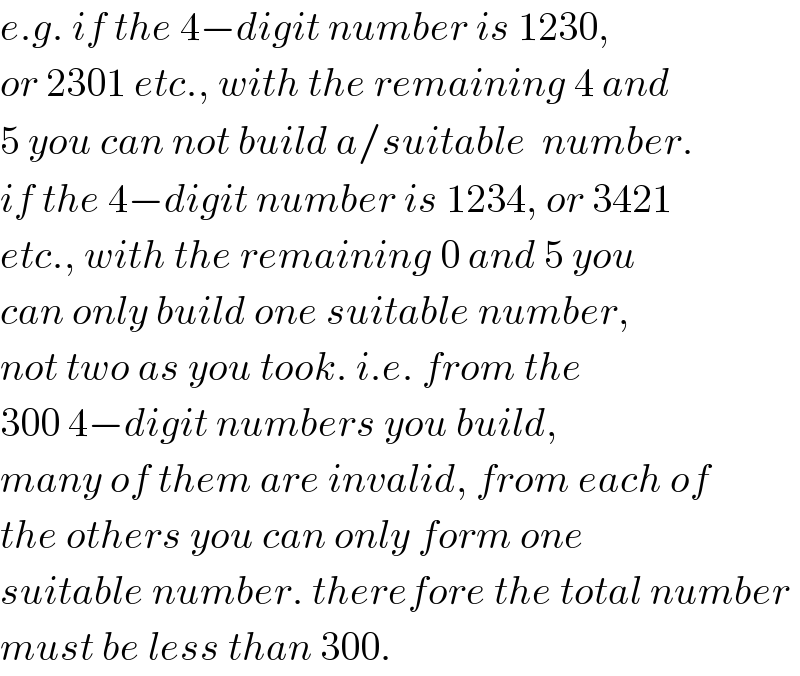
Question and Answers Forum
Previous in Permutation and Combination Next in Permutation and Combination
Question Number 50008 by rahul 19 last updated on 13/Dec/18

Commented by rahul 19 last updated on 13/Dec/18

Commented by mr W last updated on 13/Dec/18

Commented by rahul 19 last updated on 13/Dec/18

Commented by mr W last updated on 13/Dec/18

Answered by mr W last updated on 13/Dec/18

Commented by mr W last updated on 13/Dec/18

Commented by rahul 19 last updated on 13/Dec/18

